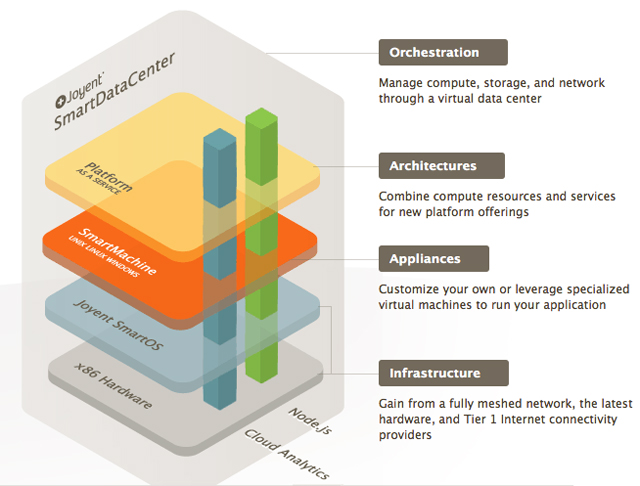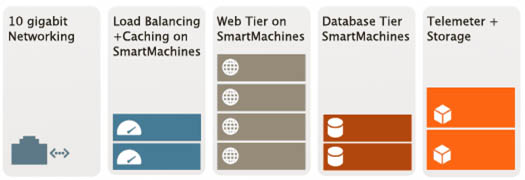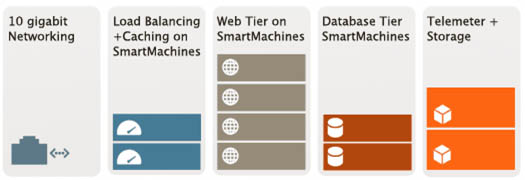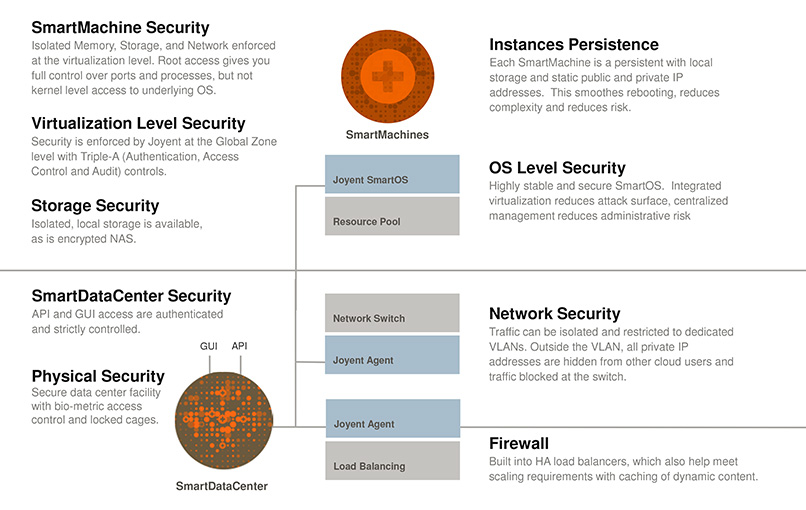The Real-Time Cloud
Run your apps on the cloud designed for the Real-Time Web.
- Lowest latency.
- 400% CPU bursting for traffic spikes.
- ZFS for 100% data integrity

Technology
Reliability & Resiliency
Amky CDN ensures your data is consistent and safe through the powerful enterprise-grade ZFS file system that is trusted by financial
institutions and the U.S. military to protect and preserve their most critical information. In the Fengqi.Asia, Cloud ZFS runs on top of a high
performance local storage subsystem which results in high data resiliency and fidelity.
Performance and Scale
Premium Disk I/O and Network I/O accelerate all applications running in the Amky Cloud. Linux and Windows SmartMachines running on
Amky's KVM hardware virtualization also enjoy lightning fast boot times. SmartOS SmartMachines extend this performance by allowing
applications to instantly burst into large pools of CPU.
Know Everything
The Amky CDN Cloud stack provides unparalleled transparency. Amky CDN Cloud customers can use our Cloud Analytics software to
generate powerful real-time graphs that take you from high level analysis down to the very process responsible for latency.
Security
Amky CDN SmartMachines run inside container-based virtualization. This virtualization system builds a digital "steel wall" around your
application which protects you from malicious internal attacks. This layer of security formerly only offered in SmartOS SmartMachines is now
provided to customers running Linux and Windows machines.
SmartOS
SmartOS: The Complete Modern Operating System
SmartOS is the only OS purpose-built for a multi-tenant cloud environment. It incorporates five powerful novel OS technologies — CPU Bursting, KVM, ZFS, DTrace and Zones— into a single operating system. SmartOS offers a unique combination of carrier-grade reliability, superior application performance, and flexible development environments.
CPU Bursting on Demand
A SmartMachine running SmartOS on the Fengqi.Asia Cloud automatically and effortlessly scales up to 400% in response to unexpected usage spikes by tapping unused compute resources in the cloud. This scaling of the virtual CPU and all related processes occurs instantly and does not require special scripting or spinning up additional instances.
The High Performance KVM Hypervisor
SmartOS uses second generation, hardware-assisted Kernel-Based Virtual Machine (KVM) virtualization to run applications under Windows and Linux, more efficiently and transparently than any other virtualization solution. KVM offers the fastest boot-times and extends DTrace introspection capabilities to Windows and Linux.
Reliable Data Storage with ZFS
SmartOS uses ZFS: the most reliable and resilient file system for enterprise and carrier applications. With storage pools, copy-on-write file system snapshots, adaptive replacement caching (ARC), and end-to-end data validation, ZFS delivers 100% data resiliency. Other clouds charge for premium storage. Fengqi.Asia Cloud offers it by default at no extra charge.
Superior Analytics with DTrace
The backbone of Fengqi.Asia Cloud Analytics, DTrace provides unique visibility into the system stack from top to bottom, allowing developers and system administrators to optimize for efficiency and pinpoint problems without taking applications out of production. A point-and-click heat map UI enables admins to click on pixels showing high latencies and drop down immediately into the responsible process.
Zones Keep You Safe
Amky CDN Cloud is the only public cloud to deploy Zones, a technology that acts as a digital "steel-wall" to ensure that tenants in our cloud cannot break out of their virtual servers and attack other occupants. Zones provide the best internal security in the cloud, bar none.
Scaling Architecture
Amky CDN Cloud technologies are currently used to allow applications to
- scale to support
- Billions of page views a month
- Handling tens of thousands of queries per second
- Growing from 0 to millions of users per day in less than 90 days
To achieve this kind of scale requires adopting straightforward scale architectures that combine multiple
SmartMachines into scale architectures.
This section will review some of those architectural patterns.
Automatic CPU bursting provides vertical scale
Even the smallest Fengqi.Asia SmartMachine comes with automatic CPU bursting. When applications require additional power,
they have immediate access to a deep resource pool for additional CPU. The performance boost is tremendous, and it comes exactly when
it's required—not minutes later.
As you scale up the architecture that supports your application, this as required vertical scale reduces the need for over-provisioning in
the web tier, thus saving you substantial expense.

Successful applications on a single SmartOS SmartMachine are common. For example, if it is a PHP application running on Apache and MySQL,
both can run on the same instance of SmartOS SmartMachine.
Applications using Fengqi.Asia's public cloud hosting are connected to high-speed networking and have access to services such as NFS drives
which can be used for back-up or for storage that needs to be shared in the future across multiple web tier servers.

The recommended approach to small-scale application architecture is to separate the database and web tier. This provides enhanced
performance over the basic deployment by providing access to specialized SmartMachines, such as the Perconna SmartMachine.
This architecture also provides modularity at the network level which makes it easier to transition to larger scale applications
without modifying the architecture.
As application traffic grows you can add additional infrastructure where you need it—such as increasing the size of the database
without affecting the web tier.

The second stage adds load balancing. For example, Stingray Traffic Manager provides a simple yet powerful web based GUI interface
to configure and then run load balancing, and page caching. The load balancing can spread requests across multiple SmartMachines running
the web tier. The page caching holds copies of dynamically generated pages in memory and then servers them up at thousands of requests
per second. Depending on the application, that caching can dramatically reduce the load on back end servers.
With load balancing in place, the web tier can horizontally scale by adding a second SmartMachine. For example, the application might
have a pair of SmartMachine running Apache with PHP code loaded on both SmartMachines. The same principle applies for Rails code running
on Mongrels or within Passenger.

The typical next step requires adding a second load balancer, such as a Stingray Traffic Manager, to make the traffic management redundant. A load balancer can automatically take care of clustering, which means that adding fail-over and increasing caching capacity and through-put capacity usually takes only minutes to configure.

In the fourth stage, adding extra capacity simply means horizontally scaling the web tier. If a given web server can handle 500 requests per second and an application needs to support 2,500 requests per second, then 5 SmartMachines are required in the web tier.

The last major step in scaling a web application typically requires scaling out the capacity of the database tier. This means increasing the size of the SmartMachines are using to run your DB from 1GB to 2GB, 4GB, 8GB, 16GB or even 32GB. We recommend making sure that your data set is never more than 80% of the RAM you have available. This allows MySQL or PostgreSQL or Oracle or DB2 or CouchDB to respond to queries without having to hit the disk for data. Retrieving data from RAM is always faster than retrieving data from disk.
Cloud Analytics
Know Everything About Your Cloud Environment
Amky CDN Cloud Analytics is a breakthrough technology that, for the first time ever, delivers sub-second latency analysis.
- Leverages DTrace, a dynamic tracing tool,to measure latency anywhere in the stack across 70,000 possible metrics
- 4-dimensional heat maps customize easy-to-understand visualizations for multiple servers, multiple applications, or multiple processes in a single pane
- Point-and-click UI instantly drops you from heat map into process causing latency
- Highlights outlying latency events that may affect users but are buried in average graphs
- Sub-second latency measurements allow identification of problems long before users notice
- Measures in real-time without slowing production environments or requiring a reboot
- Free to all Fengqi.Asia Cloud customers
A Wide Selection of Analytics Partners
Amky CDN Cloud Analytics complements our dedicated Stingray load balancer. This powerful enterprise-grade cloud appliance provides detailed analytics to identify sources of latency at the network level. Because it is dedicated to your Fengqi.Asia Cloud environment, Riverbed analytics show only your traffic rather than a portion of traffic in a public cloud.
Data Resiliency and Reliability
Enterprise-grade ZFS: The Most Reliable Data Storage
Amky CDN Cloud deploys the powerful ZFS file system to deliver carrier-grade storage and data reliability. The ZFS storage system at Amky CDN has the same design characteristics as the high-end SAN architectures trusted by enterprises everywhere to protect and preserve their most critical information. We put ZFS on top of a high performance local storage subsystem to ensure that your data is safe, consistent, and always accessible and recoverable. ZFS is a combined file system and logical volume manager designed for pooled local storage. Unlike other file systems deployed for cloud storage, ZFS' copy-on-write capability guarantees that your image will not be lost.
Key features of ZFS include data integrity verification against data corruption modes, support for high storage capacities, snapshots and copy-on-write clones, continuous integrity checking and automatic repair. ZFS is considered a true enterprise-grade file system and is regularly approved and deployed for mission critical file storage and storage management tasks by the large enterprises. Fengqi.Asia Cloud backs up ZFS with high-performance NFS storage subsystems that provide multiple redundancies for data backup and even greater assurance of data integrity and reliability.
Performance and Scale
A Cloud Designed to Run Apps Exceptionally Well
Amky CDN Cloud was designed from the ground up to deliver the best application performance and the most rapid scalability of any cloud.
Premium Disk I/O and Network I/O support accelerate all applications running in the Fengqi.Asia Cloud. Our SmartOS SmartMachines extend this
performance by allowing applications to instantly and automatically burst into large CPU pools at no charge.
In fact, each SmartOS SmartMachine can burst up to 400% instantly to handle large spikes in usage or traffic. Only SmartOS SmartMachines can
resize upwards entire application stacks including multiple layers without rebooting or requiring down time. Benchmark studies have shown that
Amky CDN SmartMachines deliver:
- Disk I/O 15x Faster than Amazon EC2
- Up to 32% faster CPU performance than AWS EC2
- Up to 73% faster Memory I/O than AWS EC2
Amky CDN Cloud also delivers applications exceptionally well on SmartMachines running Windows and Linux operating systems. Amky CDN Cloud's KVM hardware virtualization allows Windows and Linux SmartMachines to boot up in 15 seconds or less. In fact, Windows and Linux stacks running on the Fengqi.Asia Cloud outperform Windows and Linux stacks running on Amazon's EC2.
Steel-Wall Security
Container-based Virtualization
Amky CDN SmartMachines running container-based virtualization erect a "steel wall" around your applications. This wall prevents internal attacks.
Previously, this security feature was only available to customers running SmartOS SmartMachines. Now, thanks to KVM hardware virtualization
technology, Amky CDN Cloud customers running Linux and Windows SmartMachines can also deploy this feature.
Container-based virtualization allows cloud operators to create extremely secure partitions between tenants in the cloud. This prevents
unauthorized users or intruders from accessing the kernel root or entering containers where they do not have access privileges. Amky CDN Cloud's
steel wall container technology also ensures that, even if someone breaks out of their virtual machine they will not be able to execute commands
or do any damage anywhere else inside the confines of the Fengqi.Asia Cloud.

Cloud Security Architecture
We integrate security into every layer of the cloud software stack to minimize risk and enhance security management.
Amky CDN SmartOS Provides a Firm Foundation
The Amky CDN Cloud uses the Amky CDN SmartOS and SmartDataCenter to deliver top-flight cloud security. Based on carrier-grade Solaris technology, Amky CDN SmartOS provides a solid, hardened foundation above the underlying hardware and operating system for real-time web applications. The Fengqi.Asia SmartOS integrates with the SmartDataCenter orchestration functionality and development environment to provide the optimal base for cloud security and data center security.
Application Virtualization Reduces Attack Surface
The virtual resources of each Amky CDN SmartMachine virtual CPU (vCPU) reside in the Amky CDN SmartOS rather than in the virtual machine itself. An inclusive virtualization architecture (i.e., virtualization of the operating system) eliminates potential vulnerabilities in the interface between the web application layer and the operating system from the outset, mitigating the risk of hyper-jacking and reducing the attack surface size.
Network Segmentation for the Cloud
Amky CDN Cloud uses dynamic VLANs to effectively segment multi-tenant cloud customers from one another at any time. In addition, customers can request multiple layers of cloud security within their own secure LAN segment, providing even greater and more flexible server security.
Runs on Amky CDN
Amky CDN Cloud supports thousands of software applications, application runtime environments, and other products. We also have a rich ecosystem of service partners.
Development Languages
C
C++
Erlang
Java
Node.js
PHP
Perl
Python
Ruby
CMS
WordPress
Joomla
Drupal
Mambo
Textpattern
ExpressionEngine
Operating Systems
Ubuntu
Fedora
CentOS
SmartOS
Windows
App Servers and Tools
Apache
GlassFish
NGINX
TomCat
Socket.io
Databases
CouchDB
Hadoop
MongoDB
MySQL
Oracle
PostgreSQL
Riak
Redis